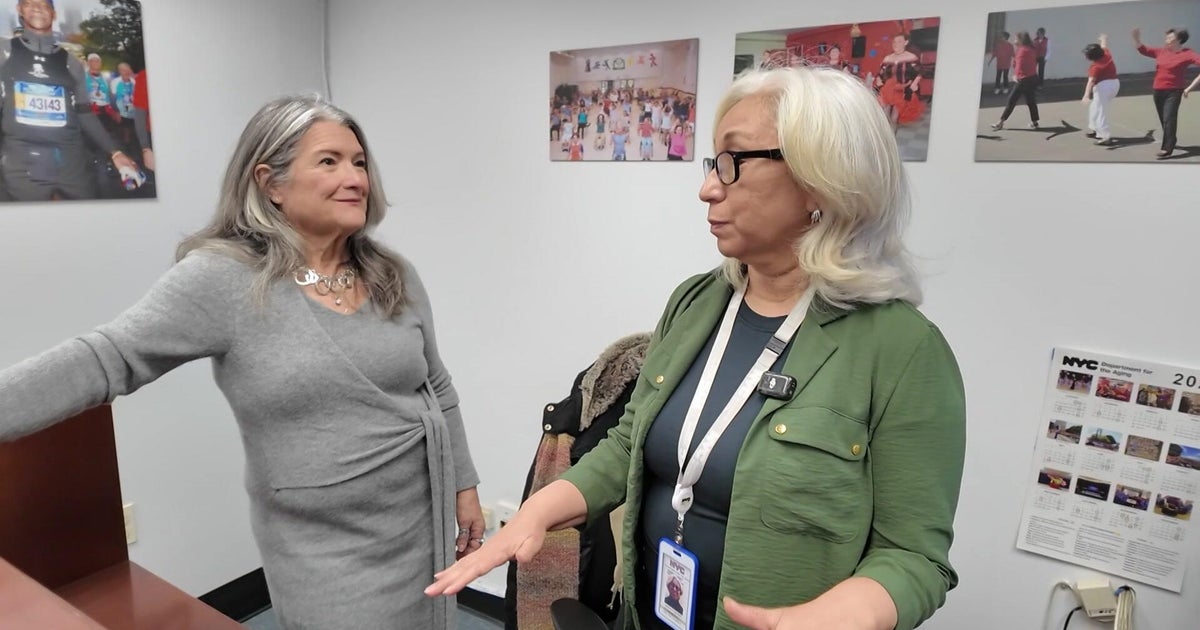They were laid off from full-time jobs, but made too little to get unemployment
Before the coronavirus, millions of workers in the U.S. made their living off tips in restaurants, bars, coffee shops, beauty salons, massage parlors and countless other service-oriented businesses. Now some of those workers who lost their jobs during the lockdowns that followed the pandemic are finding they don't qualify for unemployment benefits because — despite working full-time — they don't earn enough.
Sarah May, a 14-year food service veteran, recently found this out the hard way when the bar where she worked in White Lake, Michigan, closed its doors in March. She promptly applied for jobless aid, but her claim was denied.
After getting a representative from the state's unemployment office on the phone, May was told she made too little to qualify for benefits. Michigan requires a worker to show at least $3,744 in a quarter to qualify for unemployment benefits. May, who estimates her hourly wages at around $4, fell short by about $171, she said.
A worker who was making Michigan's minimum wage of $9.65 could have reached the minimum by working just over 30 hours a week. But tipped workers in Michigan can be paid as little at $3.67 an hour, meaning they would need to work more than twice as many hours to make the cutoff to collect unemployment insurance.
"We have great customers, and I make good money in tips," May said. But she added, "I live shift to shift. The tips I get, I know I can be guaranteed to get around a specific amount. And so I know what I can spend until my next shift. And now it was just gone, with no planning."
A nationwide problem
It's not only Michigan. In most of America, it's legal for tipped workers to be paid less than the state minimum wage. In 35 states, that wage is less than $5 an hour.
Employers are required to report their workers' tips as part of their earnings for income tax purposes as well as for unemployment insurance eligibility. But full reporting often doesn't happen, particularly with cash tips, which are notoriously variable and hard to track.
Many restaurants also skimp on reporting their workers' hours, and some forgo paying their workers a wage at all, forcing them to rely only on tips. A U.S. Department of Labor investigation early last decade found that nearly 9 in 10 restaurants violated wage and hour laws.
May was eventually approved for assistance after calling several members of Congress and her state's unemployment office. But her case is an exception.
"Most people just drop it. They won't file a request for a reconsideration to reconsider their eligibility based on their tips," said Andrew Stettner, a senior fellow at the Century Foundation who studies unemployment.
"It's absurd"
Patrick Smith applied for unemployment in early April, shortly after the upscale Pittsburgh eatery where he worked 50 or 55 hours a week shut its doors. Just last week, he received a letter from Pennsylvania's unemployment department with a similar verdict: He didn't earn enough.
"I made roughly $4,750 in my best quarter of the year. They were saying, you need to make $5,000," recalled Smith. "It's absurd that to qualify for unemployment you need to make a lot of money."
Smith, 20, didn't get a federal stimulus check, and he said he was denied food stamps because his parents claimed him as a dependent on their income taxes last year. He now lives on his own and has been supporting himself out of savings accumulated before the restaurant closed.
Smith's manager offered to contact the Pennsylvania unemployment office on his behalf, but he's not sure it's worth the effort. "The restaurants are going to open up either June 1 or June 15," Smith said. "If I did appeal, I would not hear back until I was back at work."
He added, "If I was allowed to go back to work today, I would."
High bars for unemployment
State unemployment systems were never designed to take care of everyone without a job. Rather, it's more of an insurance system for a subset of workers whose companies "pay in." States limit who's eligible by putting in requirements for duration of work and amount of earnings.
"The way the system is designed, it's for workers who are attached to the labor force, have a recent work history and lost work through no fault of their own," Stettner explained.
"If tips are included, most workers who are being paid properly would normally earn enough. But without tips, especially in states where they don't earn minimum wage, they could fall short," he said.
"This is probably a bigger problem now than it's ever been before, because of this combination of how many workers are laid off and how hard it is to get through" the state unemployment systems, Stettner added.
Some 5.3 million restaurant jobs were lost in April, according to the Labor Department, while One Fair Wage estimates the number lost to date as high as 9.5 million. A recent study by the advocacy group found that more than 40% of workers who applied for unemployment had been denied.
"It's a disaster of epic, epic proportions," said Saru Jayaraman, the cofounder of One Fair Wage and director of the Food and Labor Research Center at the University of California at Berkeley.
"Tipped workers are essentially facing two systems that were set up against them. One is an employment insurance system that's set up to denied generally, and another is a sub-minimum-wage system that has created a situation where they cannot access any benefits," Jayaraman said.
The Coronavirus Aid, Relief and Economic Security, or CARES, Act, provided an additional $600 a week for workers who qualify for unemployment benefits. But determining who qualifies for that aid is up to the states.
One Fair Wage has set up a relief fund for laid-off restaurant workers, and has received nearly 150,000 applications since mid-March, the group said.
For Gwyneth Duesbery, the roughly $200 she received from the fund let her breathe easier during the first week she was waiting on an unemployment decision. Duesbery, 21, has been laid off from her hostessing job since March, and learned this month that her unemployment benefits were denied. Her boyfriend, who was laid off from the same restaurant, is supporting them on a temporary job he has cooking food for front-line workers.
"I'm pretty much at the end of my savings from what I had," Duesbery said. "If it wasn't for this temporary job, we both would have been pretty lost."
For Jayaraman, that's a sign the system needs a total overhaul.
"If states are telling these workers, 'You earn too little to qualify for unemployment insurance,' that needs to be the message to the country that they earned too little before the pandemic," she said.



